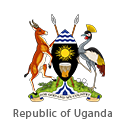Hospitality Boosts Bweyale
HOSPITALITY BOOSTS BWEYALE
A very small trading center with only three commercial buildings serving as produce stores, with less than 200 people between 1991 and 1992 is what describes the most prominent town in KIryandongo district.
222 kilometers north of Kampala along the Kampala-Gulu highway, one is welcomed by a multiplicity of languages, cultures and economic activities. One wonders in which region he/she is in Uganda or even whether he is still in Uganda or in the neighboring countries of South Sudan, DRC, Kenya or Rwanda. All Ugandan regions and the neighboring countries converge and stay in harmony at Bweyale irrespective of their differences. Kennedy Latigo the chairperson L.C.1 Bweyale cell says the town hosts 78 tribes from Uganda with foreigners from the neighboring countries.
Constant flow of traffic, multiple stages of vehicles of all sorts, boda boda stages on the roadsides with over 30 motorcycles parked, all riders keen for passengers, special hire saloon cars, taxis, buses, lorries and trailers all concentrated in a stretch of about 300 meters.
One might think Bweyale has never been a bush to a small trading center with only three commercial buildings 27 years ago.
The big question remains how did a very small town of less than 200 people with only three commercial houses 27 years ago become a center for all regions in Uganda and the neighboring countries.
The LRA insurgence in Northern Uganda greatly contributed to the rise of Bweyale town with the influx of the internally displaced people between 1990 and 1996. Later on Kenyan and South Sudanese refugees were resettled at Panyadoli refugee settlement in Bweyale town council following the 2007 -2008 post-election violence and the 2013 civil war in South Sudan respectively. However, in 2015 Kenyan refugees were taken back by the Kenyan government in collaboration with UNHCR after Kenya had fully stabilized. More internally displaced people from Bududa were resettled in Bweyale following the 2010 landslides.
The refugees and the IDPs exploded the population of Bweyale and this made Masindi district local government council elevate Bweyale to a town council status away from Kiryandongo sub county during the 2010/2011 financial year. Bweyale became a town council the same day Kiryandongo became a district.
According to Charles Ntairehoki Amooti the district chairperson Kiryandongo, the South Sudanese refugees came with a lot of money and the host community had to identify avenues for tapping it.
“As a host community we are not regretting hosting the refugees because we have benefited a lot from them. They have provided market for our products and they provide cheap labor. They have attracted implementing partners and this has improved service delivery, a case in point is a fully fledged Panyadoli health center 111. Development Response to Displacement Impact Project (DRDIP) has also been launched to support the host community; schools and roads have been constructed under this project.” Charles Ntairehoki.
Investment opportunities such as hotel and recreational centers, banking, vocational education as well as produce stores are great ideals in this town given the exploding population.
The district authority intends to conduct a survey for basic requirements for elevation to a municipality status. “Bweyale is now beyond a town council with an increased demand for services and many investment opportunities.” Ntairehoki said.
However, hosting refugees has associated challenges in Bweyale. The refugees are not well versed with the laws in Uganda and compliance is a very big problem. For example, school going is not a priority to children and assault is very normal. In Uganda and Bweyale in particular refugees are free to move and settle everywhere in what Ntairehoki describes as a “free range system” of hosting refugees. This system has constrained the host community in terms of services given the fact that the district plans for only nationals.
According to Kennedy Latigo the chairperson L.C.1 Bweyale cell, refugees with clear documents who live the settlement to settle into the town are registered as area residents but not citizens. Latigo cites idleness and gambling as a major challenge associated with the refugees in Bweyale and he intends to discuss with the camp commandant so as to address this challenge.

